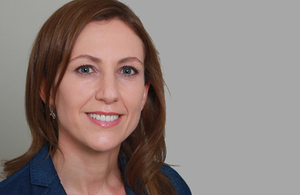Monetary economics is the branch of economics that studies the different theories of money: it provides a framework for analyzing money and considers its functions, and it considers how money can gain acceptance purely because of its convenience as a public good. The discipline has historically prefigured, and remains integrally linked to, macroeconomics. This branch also examines the effects of monetary systems, including regulation of money and associated financial institutions and international aspects.

John Brian Taylor is the Mary and Robert Raymond Professor of Economics at Stanford University, and the George P. Shultz Senior Fellow in Economics at Stanford University's Hoover Institution.
The Deutsche Bank Prize in Financial Economics honors renowned researchers who have made influential contributions to the fields of finance and money and macroeconomics, and whose work has led to practical and policy-relevant results. It was awarded biannually from 2005 to 2015 by the Center for Financial Studies (CFS), in partnership with Goethe University Frankfurt, and is sponsored by Deutsche Bank Donation Fund. The award carried an endowment of €50,000, which was donated by the Stiftungsfonds Deutsche Bank im Stifterverband für die Deutsche Wissenschaft.
The Bernacer Prize is awarded annually to European young economists who have made outstanding contributions in the fields of macroeconomics and finance. The prize is named after Germán Bernácer, an early Spanish macroeconomist.

Beatrice Weder di Mauro is a Swiss economist who is currently Professor of economics at the Graduate Institute of International and Development Studies in Geneva, Research Professor and Distinguished Fellow-in-residence at the Emerging Markets Institute of INSEAD Singapore, and senior fellow at the Asian Bureau of Finance and Economic Research (ABFER). Since 2018, she also serves as President of the Centre for Economic Policy Research (CEPR).

Paul Bernd Spahn is emeritus professor of public finance at the Goethe University Frankfurt.

Markus Konrad Brunnermeier is an economist, who is the Edwards S. Sanford Professor of Economics at Princeton University.

Christoph Matthias Schmidt is a German economist. He has been President of RWI - Leibniz Institute for Economic Research in Essen since 2002 and also holds the Chair for Economic Policy and Applied Econometrics at the Faculty of Management and Economics at the Ruhr-Universität Bochum. He was a member of the German Council of Economic Experts from 2009 to 2020 and its chairman from 2013 to 2020. Since 2019 he has been a member, and since 2020 co-chairman, of the Franco-German Council of Economic Experts. From 2011 to 2013, he was a member of the Enquete Commission "Growth, Prosperity, Quality of Life" of the German Bundestag. From 2020 to 2021 he was a member of the "Corona-Expertenrat" of the Minister President of North Rhine-Westphalia. He has been a member of acatech – Deutsche Akademie der Technikwissenschaften since 2011, a member of the presidium since 2014, and vice president since 2020. He is a member of the National Academy of Sciences Leopoldina, the Mainz Academy of Sciences and Literature and the North Rhine-Westphalian Academy of Sciences and Arts.

Richard Harris Clarida is an American economist who served as the 21st Vice Chair of the Federal Reserve from 2018 to 2022. Clarida resigned his post on January 14, 2022, to return from public service leave to teach at Columbia University for the spring term of 2022. He is the C. Lowell Harriss Professor of Economics and International Affairs at Columbia University and, from 2006 until September 2018 and from October 2022 to the present, a Global Strategic Advisor for PIMCO. He is notable for his contributions to dynamic stochastic general equilibrium theory and international monetary economics. He is a former Assistant Secretary of the Treasury for Economic Policy and is a recipient of the Treasury Medal. He also was a proponent of the theory that inflation was transitory during the COVID-19 pandemic.
Emmanuel Farhi was a French economist who served as the Robert C. Waggoner Professor of Economics at Harvard University from 2018 till his death in 2020. A specialist in macroeconomics, taxation and finance, he also served on the Conseil d’Analyse Économique from 2010 to 2010. On July 23, 2020, aged 41, Farhi committed suicide.
Sérgio T. Rebelo is a Portuguese economist who is the current MUFG Bank Distinguished Professor of International Finance at the Kellogg School of Management in Illinois, United States. He is also a co-director of the Center for International Macroeconomics at Northwestern University.
Reint E. Gropp is a German economist, the president of the Halle Institute for Economic Research (IWH) as well as professor of economics at Otto-von-Guericke University Magdeburg. His fields of research cover financial economics, macroeconomics, corporate finance as well as money and banking.
Jeremy James Siegel is the Russell E. Palmer Professor of Finance at the Wharton School of the University of Pennsylvania in Philadelphia, Pennsylvania. Siegel comments extensively on the economy and financial markets. He appears regularly on networks including CNN, CNBC and NPR, and writes regular columns for Kiplinger's Personal Finance and Yahoo! Finance. Siegel's paradox is named after him.
Sagiri Kitao is a Japanese economist and professor at the University of Tokyo.

María Silvana Tenreyro is a British-Argentine economist who is professor of Economics at the London School of Economics and served as an external member of the Bank of England's Monetary Policy Committee from July 2017 to July 2023. She served as the president of the European Economic Association for 2021.

Amir Yaron is an Israeli-American economist and the current Governor of the Bank of Israel. Prior to serving as Governor, Yaron served as Professor of Banking and Finance at the Wharton School, University of Pennsylvania.
Előd Takáts is a Hungarian economist, professor, former senior economist at the Bank for International Settlements and visiting professor at the London School of Economics and Political Science. He has been serving as rector of Corvinus University of Budapest since 1 August 2021.

The government of Germany initially responded to the COVID-19 pandemic in the country with preventive measures to curb the spread of the coronavirus disease 2019 in the country. With the nationwide spread of the disease from March 2020, preventive measures were replaced by containment measures, including a lockdown from March. On 25 March, the Bundestag made the determination of an epidemic situation of national significance. This created a legal framework for the government of chancellor Angela Merkel and the heads of the 16 German states to agree on nationwide pandemic restrictions. Implementation of decisions by that panel remained a matter of individual states, however, leading to differences in anti-pandemic rules and regulations across states. The Bundesnotbremse in force from April to June 2021 sought to establish uniformity.

Moritz Schularick is a German economist, who is Professor of Economics at Sciences Po Paris and the University of Bonn. He works in the fields of macrofinance, banking and financial stability, as well as international finance, political economy, and economic history.
Raghbendra Jha was an Indian economist and an academic who was a professor emeritus in the Arndt-Corden Department of Economics at the Crawford School of Public Policy at Australian National University. Jha's research focused on public economics, macroeconomics, development economics, and the economy of India. He has authored and edited numerous books, including Macroeconomics for Developing Countries, Modern Public Economics, Facets of India’s Economy and Her Society, Environmental Sustainability: A Consumption Approach, and Macroeconomics for Development: Prognosis and Prospects and several others.










